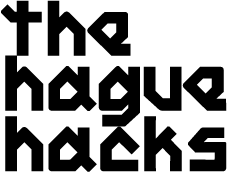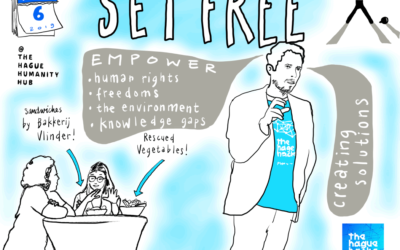Report: Threats to Human Rights Defenders in The Netherlands
A Call for Immediate Action
PERSBERICHT – PRESS RELEASE
For English translation see below 12-02-2020
Mensenrechtenactivisten in Nederland bedreigd vanuit landen van herkomst.
Met enige regelmaat zijn buitenlandse mensenrechtenactivisten die in Nederland werken of als vluchteling hier wonen slachtoffer van bedreigingen, intimidatie of zelfs geweld. Er zijn daarbij steeds sterke aanwijzingen dat deze incidenten georganiseerd worden vanuit het land van herkomst, met als doel om hen hier het zwijgen op te leggen over de mensenrechtensituatie ter plaatse. Dat is één van de conclusies uit het rapport “Threats to Human Rights Defenders in The Netherlands” dat The Hague Peace Projects op 12 februari 2020 publiceert.
Het rapport presenteert de ervaringen van vijftien mensenrechtenverdedigers in Nederland. Hun verhalen lopen uiteen van online doodsbedreigingen via sociale media en het hacken van telefoons tot meer ingrijpende zaken als achtervolging van een Rwandese activist op straat, het doelbewust aanrijden van een Congolese activist en het saboteren van de personenauto van een Palestijnse activist die eerder een rechtszaak had aangespannen tegen Israëlische generaals.
Een week geleden nog rapporteerde de NOS dat één van de activisten, Waqass Goraya, een bekende blogger uit Pakistan, was aangevallen op straat. Hij werd voor zijn woning door een onbekende man in elkaar geslagen, terwijl een tweede man het incident filmde. Na afloop riepen ze hem toe dat ze hem de volgende keer zouden vermoorden. Voorafgaand aan deze escalatie had Waqass de onderzoekers al verteld dat hij regelmatig online werd bedreigd en dat hij hiervan steeds aangifte had gedaan bij de politie.
Enkele Oeigoerse activisten vertellen dat zij direct vanuit China telefonisch bedreigd worden. Niet hun eigen leven staat daarbij op het spel maar dat van hun familieleden in China. Toen zij niet geen gevolg gaven aan de telefonische bedreiging zijn daadwerkelijk zijn hun kinderen, ouders, broers of zussen na verloop van tijd verdwenen. Deze activisten leven in voortdurende stress en angst voor wat hen in het thuisland kan zijn overkomen.
Alle activisten maken duidelijk dat de bedreigingen en intimidatie een veel breder negatief effect hebben dan enkel op hun eigen fysieke en mentale welbevinden en dat van hun directe familie. Ze leggen er de nadruk op dat er door deze incidenten een grote angst ontstaat binnen de hele migrantengemeenschap waar zij deel van uit maken. Het netto effect van bedreiging en geweld, georganiseerd vanuit landen met onderdrukkende regimes, is dat mensen in Nederland zich niet vrij voelen om zich kritisch te uiten over het land van herkomst.
Deze uitkomsten laten zien dat er in Nederland een serieus probleem bestaat waarvoor snel een oplossing moet komen. Daarom stelt The Hague Peace Projects voor om een vast meldpunt aan te wijzen bij één van de ministeries waar mensenrechtenactivisten die bedreigd worden kunnen aankloppen voor hulp en advies. Één centraal meldpunt helpt de Nederlandse overheid om zicht te houden op buitenlandse dreiging en snel actie te ondernemen richting het land van herkomst. Ook kan het meldpunt lokale politiediensten ondersteunen in het doen van aangifte en recherche, aangezien er op dat punt nu nog tekortkomingen zijn.
—-EINDE PERSBERICHT— Voor meer informatie over het onderzoek kunt u contact opnemen met Jakob de Jonge: j.dejonge@thehaguepeace.org, 06-18051097
PRESS RELEASE 2020/12/02
Human rights activists in the Netherlands threatened from countries of origin.
Foreign human rights activists who work in the Netherlands or live as refugees are regularly victims of threats, intimidation or even violence. Each time there are clear indications that these incidents are organized by the country of origin, with the aim of preventing the human rights activist living in the Netherlands from talking about the human rights situation in the country of origin. This is one of the conclusions from the report “Threats to Human Rights Defenders in the Netherlands” that The Hague Peace Projects published on 12 February 2020.
The report presents the experiences of fifteen human rights defenders who are currently in the Netherlands. Their stories range from online death threats through social media and the hacking of telephones to more extreme incidents such as following a Rwandan activist on the street, a car driving deliberately into a Congolese activist and the sabotage of a Palestinian activist’s car who was in the middle of a lawsuit against Israeli generals.
Just a week ago, NOS reported that one of these activists, Waqass Goraya, a well-known blogger from Pakistan, was attacked on the street. He was beaten in front of his home by an unknown man, while a second man filmed the incident. Afterwards they shouted that they would kill him next time. Prior to this escalation, Waqass had already told the researchers that he was regularly threatened online and reported each of these incidents to the police.
Some Uyghur activists say that they are threatened over the phone directly from China. In their case it is not their own lives that are at stake, but that of their family members in China. And indeed, after they refused to give in to the threats by the secret service, their children, parents, brothers and/or sisters disappeared soon after. These activists live in constant stress and fear of what may have happened to their family in their home country.
All activists make it clear that the threats and intimidation have a much wider negative effect than just their own physical and mental well-being and that of their immediate family. They emphasize that these incidents create fear within the entire migrant community of which they are a part. The real effect of threats and violence, organized from countries with oppressive regimes, is that people in the Netherlands do not feel free to express any criticism about their country of origin.
The result of this research demonstrates a serious problem in The Netherlands. Immediate action is necessary. The Hague Peace Projects calling upon the Dutch Government to organize a focal point at one of the ministries, where human rights activists who are threatened could turn to for help and advice. One central focal point would help the Dutch government to keep an eye on foreign threats and to take rapid action against these with timely reprimands against the country of origin. Such a focal point would also help local police services file reports and launch investigations into these kinds of threats given the shortcomings that exist in this regard.
— END OF PRESS RELEASE–
For more information about the research you can contact Jakob de Jonge: j.dejonge@thehaguepeace.org , 06-18051097



